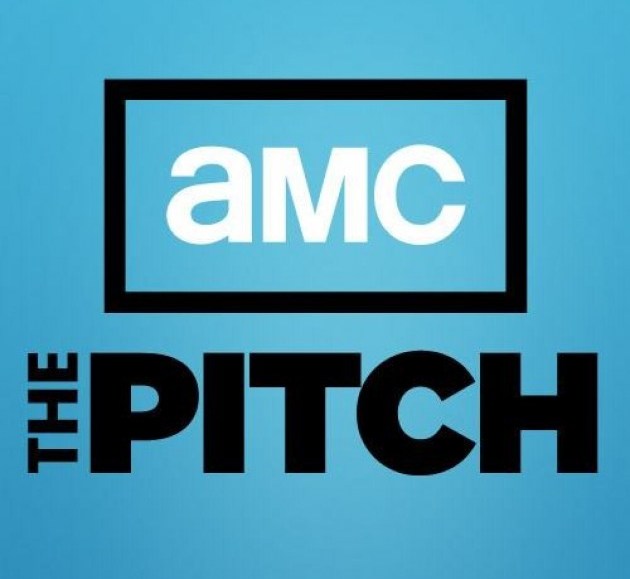Save 50% on a 3-month Digiday+ membership. Ends Dec 5.

Plenty of folks are using AMC’s “The Pitch” to debate the merits of how new business in our industry is won. To adequately review the show, the better question to me is what is our motivation to watch? Is it a show that we should study— or simply an escape to enjoy. If we’re supposed to learn how to pitch, then I’ll argue the show teaches terrible lessons.
In the Subway first episode, for example, the better idea didn’t win, yet a terrible presentation did. And in last night’s competition between The Ad Store and SK+G, originality—a touchstone for many of us—didn’t seem to count in the end. Entertainment, however, is the purpose of reality shows, whether you’re a fashion designer, a chef, or a creative exec spouting clichés. The job of “The Pitch” is to keep us gripped for an hour a week and get us to tune in (or DVR) again, so even with the flaws of this week, I’m still in.
Last night, Las Vegas agency SK+G and New York’s The Ad Store squared off to build awareness of how client Waste Management transforms trash to energy. “We do so much more than garbage,” a client bragged in the straightforward briefing. As most of us probably recognize, nearly every assignment nowadays seems to be about energy or jobs with the hope that our idea will “go viral.”
If you love drama, there was the suspense of what ideas each team would propose and which in the end would win. If you’re an old-time “Dynasty” fanatic like I am, you were disappointed at the lack of Krystal and Alexis cat fights. Instead you had to suffer through SK+G internal sparring, including cringe-worthy, passive-aggressive tension between co-creative directors. Ick. This was different from the sneak preview since McKinney and WWDC both seemed more unified, more polished and more experienced at pitches. The agencies’ proposed campaigns were hardly shocking. SK+G developed “Garbage is Good,” and The Ad Store presented “Trash Can” (the word ‘can’ as a verb as well as noun). With less than six days to work, it’d be arrogant to presume you’d do much better. Interestingly, they both had the same insight, although Ad Store’s tagline and on-street executions seemed stronger. Of course, both did a manifesto. We love manifestos.
If you’re looking for authenticity, you could find plenty. There was the initial briefing: SK+G telling the clients their city is beautiful (Houston?) and that their product has infectious passion. There was the competitive idea generation and politics back home. Researching and bad-mouthing the competition rang true too, along with the final presentation technical glitches that didn’t end up mattering. What was glaring, however, was the total absence of strategy, which doubly annoys me since half my household does this for a living. No unique or provocative insights worth sharing? None?
All the time spent on agency soul searching, though, wasn’t real to me. Sure, most agencies navel-gaze, but it’s usually about how amazingly clean their navel is, not self-doubt and teary-eyed mush like we saw.
I bet the big takeaway for most viewers is that the winner of a pitch like this is the idea the client simply likes the most. What bugs me is that, since I started in advertising 20 years ago, I’ve believed that the client buys an agency and its people; the idea is a sample of how we think and work. This might no longer be true. More and more, I’ve noticed that pitch work actually becomes the produced work. Perhaps it’s the need for speed to market. So they really aren’t buying just us, they’re buying our ideas. And for those of you who don’t obsess over award shows, some of last night’s pitch work may have been unintentionally real a year ago. SK+G’s app combining print and mobile — the social media idea that helped the agency “nail” it and win the night— wasn’t original or bold. Reporters Without Borders did the same application more elegantly last spring, garnering a slew of awards. Perhaps the client doesn’t know or care. But we do. And we desperately want to think originality wins.
Ad position: web_incontent_pos1
Will I watch again? It’s a bit early in the show’s life to jump the shark, although it started to go there with the personality deep-dives on various characters. The fixation on Bob’s smoking. The crying toddler in Las Vegas. Still, I wish I had dramatic music following me around like that.
Mat Zucker is a creative director, marketer and essayist in New York. Follow him on Twitter @matzucker
More in Marketing

Ulta, Best Buy and Adidas dominate AI holiday shopping mentions
The brands that are seeing the biggest boost from this shift in consumer behavior are some of the biggest retailers.

U.K. retailer Boots leads brand efforts to invest in ad creative’s data layer
For media dollars to make an impact, brands need ad creative that actually hits. More CMOs are investing in pre- and post-flight measurement.
Ad position: web_bfu
